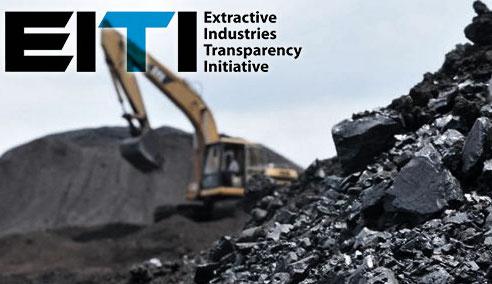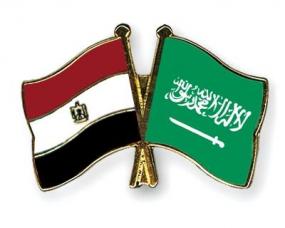
On February 24-25, 2016, the Extractive Industries Transparency Initiative (EITI) held its 7th Global Conference in Lima, Peru. The conference was attended by more than 750 representatives from 48 implementing countries, including Indonesia. The gathering, which is held every three years, discussed the latest developments in natural resource governance at both national and international levels.
EITI is a multi-stakeholder form of governance in resource-rich countries. First initiated by then British Prime Minister Tony Blair in 2003, following the establishment of an NGO-led campaign “Publish What You Pay” a year before, this initiative has grown into a platform for multi-stakeholder partnerships worldwide. It now comprises 48 implementing countries, which unite three key stakeholders (governments, companies and civil society) to talk about transparency in natural resource governance in their respective countries.
Indonesia and EITI
Indonesia has been implementing EITI since 2009, and was considered compliant by the EITI Board in 2014, after submitting a Validation Report. However, in 2015, this status was suspended due to a report submission delay, which was lifted the same year.
What does EITI mean for Indonesia? Having once been a resource-rich country, Indonesia is considered the most populous among the other countries. It is also dependent on natural resources, with 29 percent of its revenues coming from extractive industries. According to the World Bank, 15.5 percent of Indonesia’s total Gross Domestic Product (GDP) came from the extractive sectors (7 percent from mining and 8.5 percent from oil and gas), with more than 40 percent of exports within these sectors in 2011.
Indonesia is also viewed as an emerging democracy, which is essential to adapt to EITI principles and standards. EITI is implemented in accordance with principles of good governance and recognizes, to some extent, the multi-stakeholder partnerships in the process. These bring benefits for Indonesia in terms of improving its profile in world politics, particularly among other EITI-compliant countries.
Indonesia has, up to now, produced three EITI reports that disclose company and government revenue in the extractive sectors. The latest report, which was released in 2015, reveals that there are 10 oil and gas companies and 21 mining companies who do not report their revenues according to EITI Standards.
This report, nevertheless, is progress for Indonesia. With transparency in the extractive sector, Indonesia is now set to improve its achievements in managing natural resources. EITI enables it to access the sum of the revenue of companies’ investment in the sector, thus giving space for policy improvement in the future.
This achievement, as highlighted in the 7th EITI Global Conference, made Indonesia, along with Philippines and Mongolia, a success story in terms of resource governance reform in Asia and the Pacific. With Indonesia’s active involvement in the EITI, it is set to improve its accountability in extractive sectors and, to some extent, make itself a learning site for other resource-rich countries.
The question of sustainability
Indonesia’s achievement in the EITI has been followed by another question: can the EITI deliver sustainability for Indonesia?
This question, however, also was the case for EITI at a global level. The latest EITI Global Conference was unable to provide a clear yet comprehensive answer to the question of sustainability. While all conference participants were impressed by the achievements of several countries in improving their accountability and transparency, the issue of sustainability seems to have been overlooked.
EITI has yet to design a platform to provide sustainable resource governance. On the one hand, it occurs due to the unsustainable nature of extractive industries, which produce non-renewable energy resources that are massively consumed. On the other hand, EITI has yet to create a mechanism to reduce the dependency of countries on natural resources and invest in renewable energy.
This then constitutes a limit of transparency in EITI discourse of resource governance. While EITI has set achievements in promoting transparency and accountability to resource-rich countries in Asia and Africa, it has not addressed the issue of how to sustainably manage natural resources, so their dependency on natural resources can be reduced.
This question is important because the current global development agenda has seen a shift from “human development” to “sustainable development.” The United Nations has set Sustainable Development Goals, which contain 17 key pillars related to sustainability and industry practices. This shift raises a further question over how extractive sectors deal with this issue, by reducing the dependency of countries on natural resources and giving space to develop renewable energy resources.
Civil society organizations have moved forward to address this issue. The sustainability question has been considered, for example, by Oxfam, which launched its Extractive Industries Strategic Plan (2016-2019) in Lima (22/2). In the strategic plan, Oxfam prioritizes gender and sustainability issues as its program and approach in developing countries.
Therefore, it is important to discuss EITI not only in terms of its transparency and accountability mechanisms in natural resource governance, but also in providing space to think about sustainable resource governance. It needs, as Clare Short (former EITI Chairperson) stated, integrating the EITI into government systems. This task faces all key EITI stakeholders.
Challenges for Indonesia
Indonesia can move forward to fill this gap. For example, it can use EITI to set sustainability mechanisms for extractive companies through corporate social responsibility (CSR). By disclosing revenue, the public will know how much money can be used for CSR. The use of CSR will be the main issue. Government, for example, can reinforce research on renewable energy through this platform.
Also, Indonesia also needs to set policy mechanisms to reduce the massive consumption of non-renewable energy resources among its population. The number of private transportation should be decreased and the government needs to enhance the use of public transportation among citizens.
Regarding this, President Joko Widodo’s commitment to improve infrastructure development needs to be addressed. Infrastructure should not only be a tool to enhance business access in Indonesia. It also needs to be set as a way to improve public facilities, so that the use of non-renewable energy resources can be reduced.
Therefore, Indonesia can develop EITI as a mechanism to enhance sustainability. The task requires a reformulation of EITI from a report for transparency and accountability in extractive sectors to a framework for sustainable resource governance. Nevertheless, this pioneering work will make Indonesia a model for sustainable development for the rest of the world.
The writer is a policy analyst with Global Leadership Initiative, and is studying for an MSc in Politics with Research Methods at the Department of Politics, the University of Sheffield.










 resized.png)
